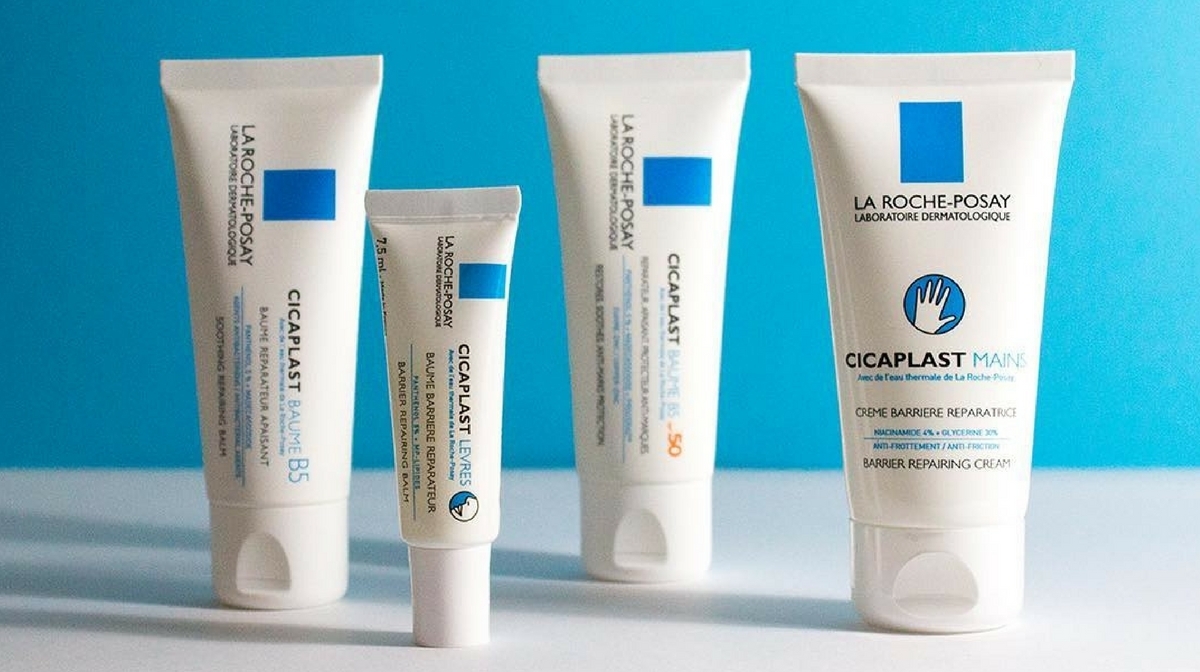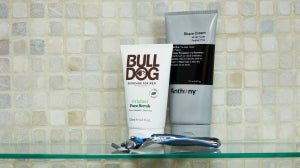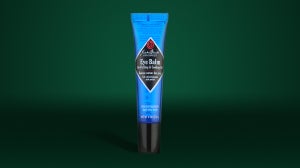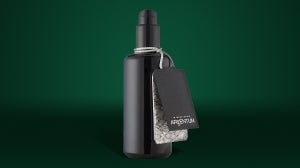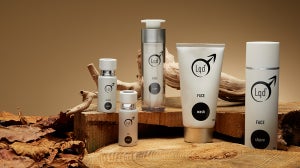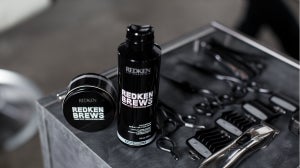
We interviewed Dr Sarah Wakelin, dermatologist working with La Roche-Posay, for an in-depth take on the most common skin care issues affecting men.
If you were talking to an absolute beginner – what would you say are the most important elements of a male skin care routine?
The skin is the largest organ in a man’s body and essential for survival. It’s more than a simple wrapping though as our skins change throughout life and varies from one part of the body to another; the skin on your eyelid is very different from your elbow. Look after it as it’s got to last you a lifetime!
Skin cleansing is really important as it removes built up grease, grime and dead skin cells from the surface.
The climate and how you wash your skin are far more relevant to skin complaints than food allergies, so enjoy a healthy diet and occasional treat without worrying that it will affect your skin. Oily zones such as the nose and forehead do not need moisturising, but dry zones like the hands and lower legs have much less oil and can get dry and cracked in the wintertime.
Get to know your skin and decide where your skin is dryness‐prone and oily‐prone. For example, a man’s hands and lower legs can easily get dry in the winter time, even if he has a greasy facial complexion.
If you have fair skin, especially with a freckly complexion and fair eyes, you are at increased risk of getting skin cancer so need to take it easy in the sun. There is actually no such thing as a healthy tan – and the harder it is for you to tan, the less you should try! On the other hand, people with dark skins need to get sun exposure or they risk vitamin D deficiency with the UK climate. So there is no universal rule of how much sunshine we need – it depends very much on your skin colouring.
Fair skinned men who lose their hair young are at risk of getting skin cancers on their scalps later in life due to long‐term sun damage. Cover up to stay protected!
Dry skin around the crease of the nose, inner cheeks and eyebrows is usually a sign of seborrhoeic dermatitis.
What are the main things to consider when buying a skincare product?
If you suffered with eczema as a child or have hay fever you are likely to suffer from a dry skin tendency and can be prone to irritation. Avoid soap and detergent cleansers as these damage the skin barrier and can cause a variety of skin issues. Understanding whether you are dryness‐prone or oily‐prone can help you chose the right skin care products, as well.

How frequently should products be used? What factors might affect this?
Daily cleansing is important to get rid of dead skin, microbes and pollution but over‐use of detergent cleansers can irritate and damage the crucial protective outer layer of the skin called the stratum corneum. If your skin feels tight or prickly after washing, it’s a sign you’ve used something too harsh.
There’s growing evidence of a link between healthy skin and a healthy mind and body.
What steps can a man take to prevent the most common skin issues?
Acne affects the oily skin zones of the face and upper torso. Daily cleansing is important, but won’t solve the problem. See your pharmacist or GP for advice about treatment. There is no quick fix and treatment needs to be used every day on the acne prone areas, not just the spots. Exfoliating only takes away the surface layers of a blocked pore and does nothing to stop it re‐blocking. If you follow up with a topical therapy this will be more effective in preventing blocked pores and pimples in the longer run.
Dry skin around the crease of the nose, inner cheeks and eyebrows is usually a sign of seborrhoeic dermatitis and is not caused by a lack of grease, but by excessive skin flaking. It usually goes along with a tendency to dandruff. Use an antifungal antidandruff shampoo twice a week and wash your eye brows at the same time. Leave them on for a few minutes before rinsing so the treatment has a chance to work. They lower the skin level of pityrosporum yeasts that are thought to trigger seborrhoeic dermatitis.
Athlete’s foot is a common skin infection in men (whether sporty or not). It usually starts as peeling skin between the toes that spreads to the sides of the feet. It causes itch and foot odour. Treat it early with antifungal creams and foot powder to prevent further spread to the toenails and other body sites.
What should eczema sufferers take into consideration when building a skincare routine? What should they look for in a product?
Eczema sufferers need to chose gentler cleansers and avoid soap and detergent‐based products as these dry and irritate the skin. The commonest ingredients in skin care products that cause allergies are fragrance (which is listed on the ingredient label as ‘parfum’) and preservative chemicals so avoid these if in doubt. Anti‐ageing products, exfoliators and toners can also irritate eczema prone skin.
How important are lifestyle factors in skin care, and which are the most important?
There’s growing evidence of a link between healthy skin and a healthy mind and body. So here’s yet another reason to focus on all these important aspects of our lives. One of our biggest challenges today is managing the chronic stress that can come from a 24/7 lifestyle.
Inflammatory skin complaints such as eczema, acne and psoriasis can be aggravated by stress. Being overweight increases the risk of skin infections such as folliculitis and cellulitis.
Recent studies have shown that the skin has daily (circadian) rhythms and responds to the body clock. For example, facial oil production is highest in the afternoon and the skin naturally gets warmer and itchier in the evening. A healthy lifestyle, with good balanced nutrition, regular exercise and getting into a regular sleep routine helps keep your mind and body healthy, including your skin. Tobacco smoke is toxic and causes premature skin ageing with wrinkles and a dull complexion. Air pollution is another cause of skin damage. Alcohol dehydrates the skin (as well as the brain), so take it easy where possible!

If you could only include one skincare product in your routine, which would you pick and why?
My daily moisturiser with SPF as I’m fair skinned and burn easily. I enjoy warm climates and being outdoors. However, my face doesn’t need any more sunshine or freckles so I give it some extra care!
What’s the best thing about working in dermatology?
The skin is a fascinating and complex organ. It does an amazing job for most of us most of the time. When things go wrong, making the right diagnosis is really important as this give someone the best chance of getting the best available treatment. The skin is so visible and accessible that this can usually be done by a careful examination and some simple tests. We are just starting to understand how our genes and environments interact to cause skin disease and there’s much to be discovered. So plenty to keep me on my toes!
We also chatted with the La Roche-Posay Development Team about their range -
What developments have are currently underway at LRP, and what makes the products stand out?
We are currently leading in-depth research on the microbiome and its impact on eczema, acne and psoriasis.
La Roche-Posay work in partnership with dermatologists to create products that are both highly effective and, most importantly, safe for all skin-types - even the most sensitive. What makes La Roche-Posasy stand out is their commitment to creating a better life for sensitive skin and the lead they take in skin research. For instance, we are currently leading in-depth research on the microbiome and its impact on eczema, acne and psoriasis.
What are the long terms aims in LRP product development? What new products can we expect to see in future?
La Roche-Posay are committed to creating a better life for those with sensitive skin and are working tirelessly on a range to give relief to those suffering with skin concerns. It is predicted that by 2050, almost 1 in 2 people will suffer from allergies - this is just one insight that La Roche-Posay are using to inspire their future product development.
Like this content? Check out our Best Concealers for Men, and our Crafty Men's Cosmetics Tips. And make sure you keep up to date with the MankindBlog.

